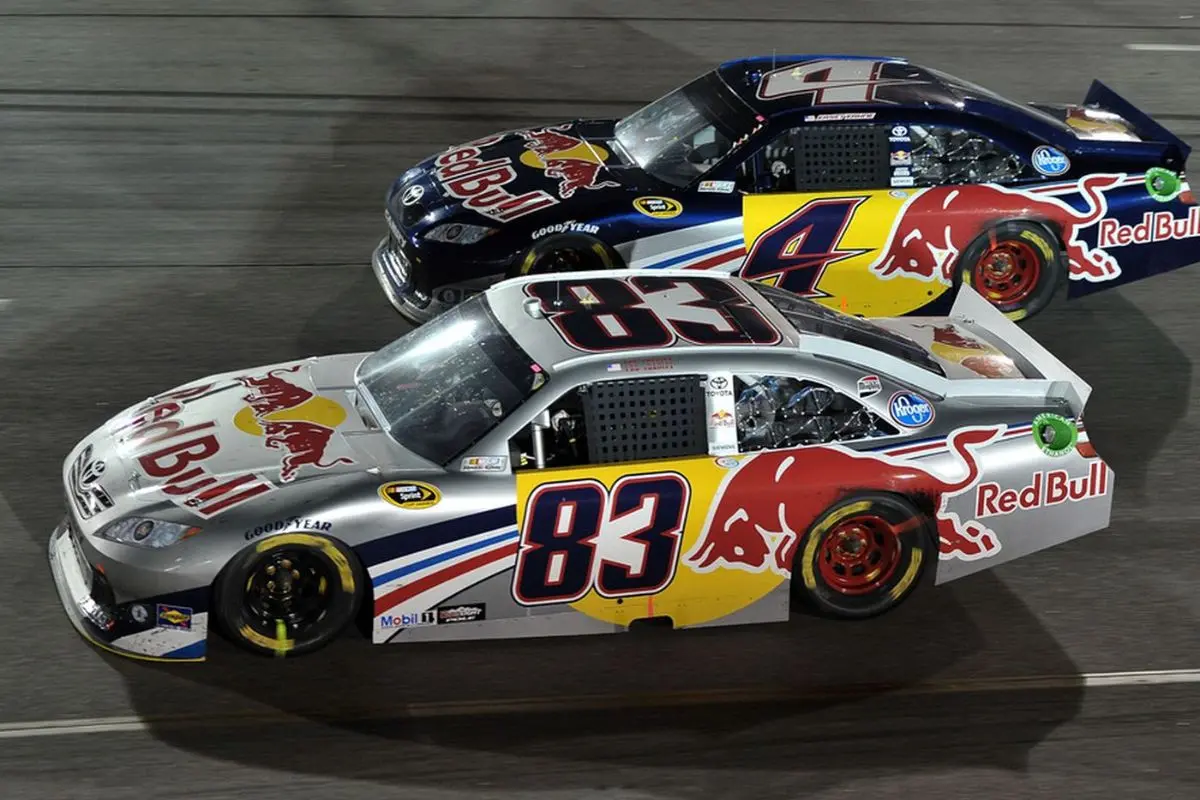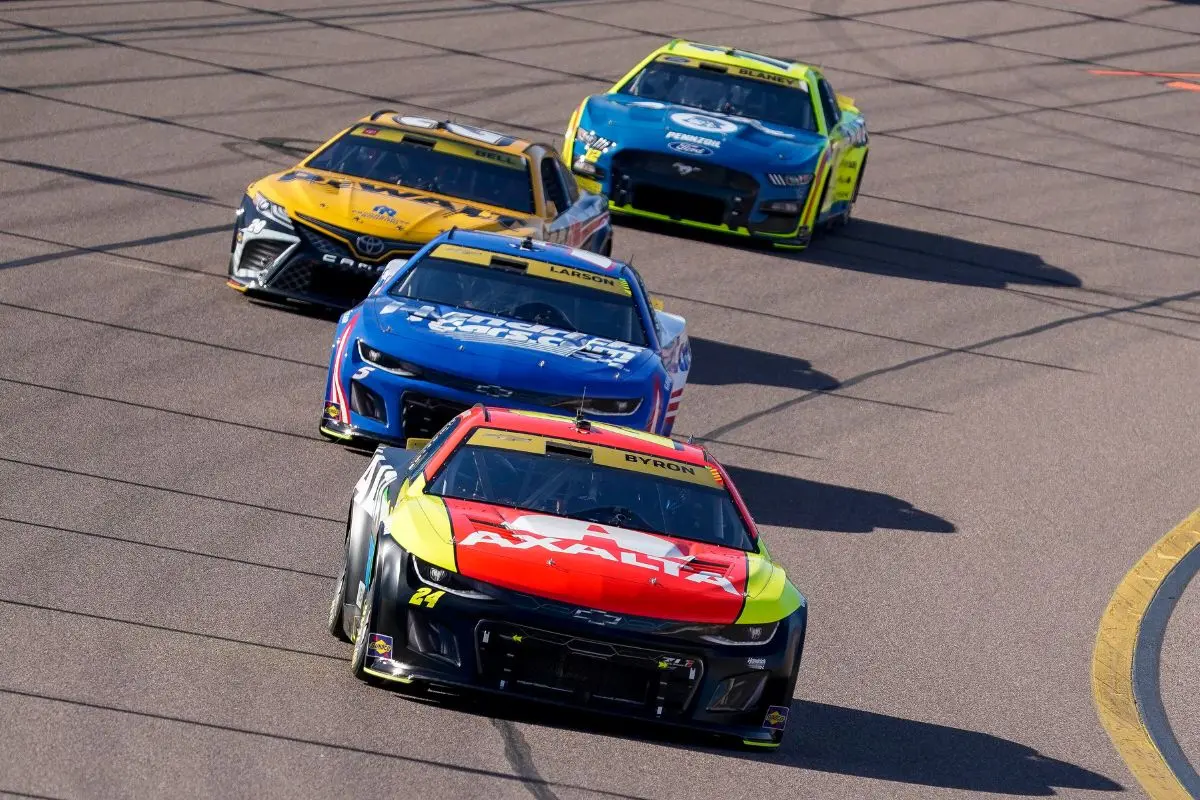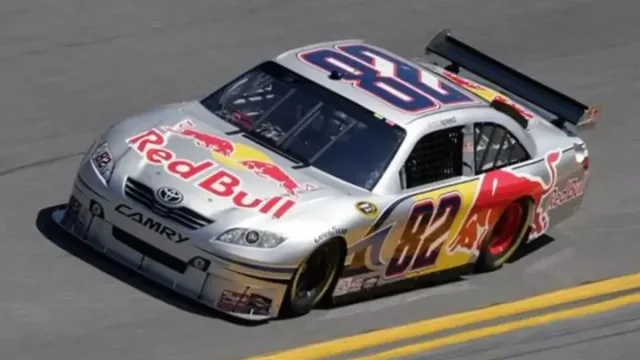Why Red Bull’s NASCAR team couldn’t keep up despite millions spent is a question that still sparks curiosity among fans. When Red Bull entered NASCAR in 2006, they had high hopes, investing heavily in the sport. But their journey was full of struggles and setbacks, leading to a bitter ending in 2011. Now, with a surprising return planned alongside Trackhouse Racing in 2025.
Red Bull’s Initial NASCAR Journey as Red Bull Racing (2007-2011)
Red Bull entered NASCAR in 2006, establishing a team based in Mooresville, North Carolina, with an ambitious goal of making a significant impact in stock car racing. The team operated from 2006 to 2011, acquiring the former Penske Racing headquarters and fielding cars for drivers like Brian Vickers and Kasey Kahne. Despite substantial financial investment, the team struggled to consistently compete at the highest level.
Their most notable achievements included two total victories – Brian Vickers’ win at Michigan International Speedway in 2009 and Kasey Kahne’s final victory at Phoenix in 2011. The team faced numerous challenges, including difficulty qualifying for races and maintaining competitive performance. Their 2007 season was particularly challenging, marked by multiple failures to qualify and only occasional top-10 finishes. Red Bull’s NASCAR venture was part of a broader motorsport strategy initiated by founder Dietrich Mateschitz, who saw stock car racing as a potential marketing platform.

Operational Challenges and Team Closure
Red Bull’s NASCAR team encountered significant operational and financial challenges that ultimately led to their departure from the sport. Despite spending hundreds of millions of dollars over six seasons, the team managed only two victories from 286 race starts. The primary issues included inconsistent performance, inability to attract and retain top-tier drivers, and struggles to connect with the crucial 18-34 demographic.
On June 20, 2011, the Associated Press first reported Red Bull’s plans to exit NASCAR, with the team seeking outside investors and evaluating their future in the Sprint Cup Series. The team was not financially sustainable, as they had to cover not just operational costs but also the sponsorship funding typically provided by external sponsors. Red Bull’s lack of consistent success and the financial burden of running a full-time NASCAR team forced them to shut down operations on December 8, 2011, selling their equipment and owners’ points to BK Racing.
Red Bull’s Motorsport Strategy and Expansion
Red Bull’s NASCAR involvement was a strategic extension of their global motorsport marketing approach, which has been characterized by aggressive and innovative sponsorship strategies. The company, known for its dominance in Formula 1, saw NASCAR as an opportunity to expand its brand presence in the American motorsports market. Their motorsport strategy has consistently focused on identifying and supporting young, talented drivers across multiple racing disciplines.
While their NASCAR team was short-lived, it demonstrated the company’s willingness to invest in diverse racing platforms. Red Bull has maintained a reputation for supporting extreme sports and unconventional athletic endeavors, using motorsports as a key marketing tool. Their approach goes beyond traditional sponsorship, often creating entire teams and providing comprehensive support to athletes. The NASCAR venture, though unsuccessful, was part of a broader strategy to connect with global audiences and create memorable brand experiences.

Red Bull’s Return to NASCAR with Trackhouse Racing
Red Bull has made a significant comeback to NASCAR by partnering with Trackhouse Racing for the 2025 NASCAR Cup Series campaign. The partnership will see Red Bull serving as the primary sponsor for two drivers: Shane van Gisbergen and Connor Zilisch. Van Gisbergen, a three-time Supercars champion, will drive the No. 88 Chevrolet and compete for Rookie of the Year honors.
Red Bull will sponsor five specific NASCAR Cup Series events: Las Vegas Motor Speedway (March 16), Sonoma Raceway (July 13), Iowa Speedway (August 3), Daytona International Speedway (August 23), and Kansas Speedway (September 28). Additionally, Red Bull will sponsor Connor Zilisch’s NASCAR Cup Series debut at the Circuit of the Americas on March 2nd. Trackhouse Racing founder Justin Marks expressed excitement about welcoming Red Bull back to NASCAR, describing it as an “incredible chapter” and highlighting the shared passion for racing and storytelling.

News in Brief: Why Red Bull’s NASCAR Team Couldn’t Keep Up
Red Bull’s NASCAR journey from 2006 to 2011 was marked by ambitious goals, financial investment, and notable victories. However, operational challenges, inconsistent performance, and financial unsustainability led to their exit. Despite these struggles, Red Bull’s return with Trackhouse Racing in 2025 shows a renewed commitment to NASCAR and its fans. Their sponsorship of Shane van Gisbergen and Connor Zilisch signals a fresh start.
ALSO READ: Red Bull Rejoins NASCAR with Justin Marks at the Lead After 14 Years of Exit
